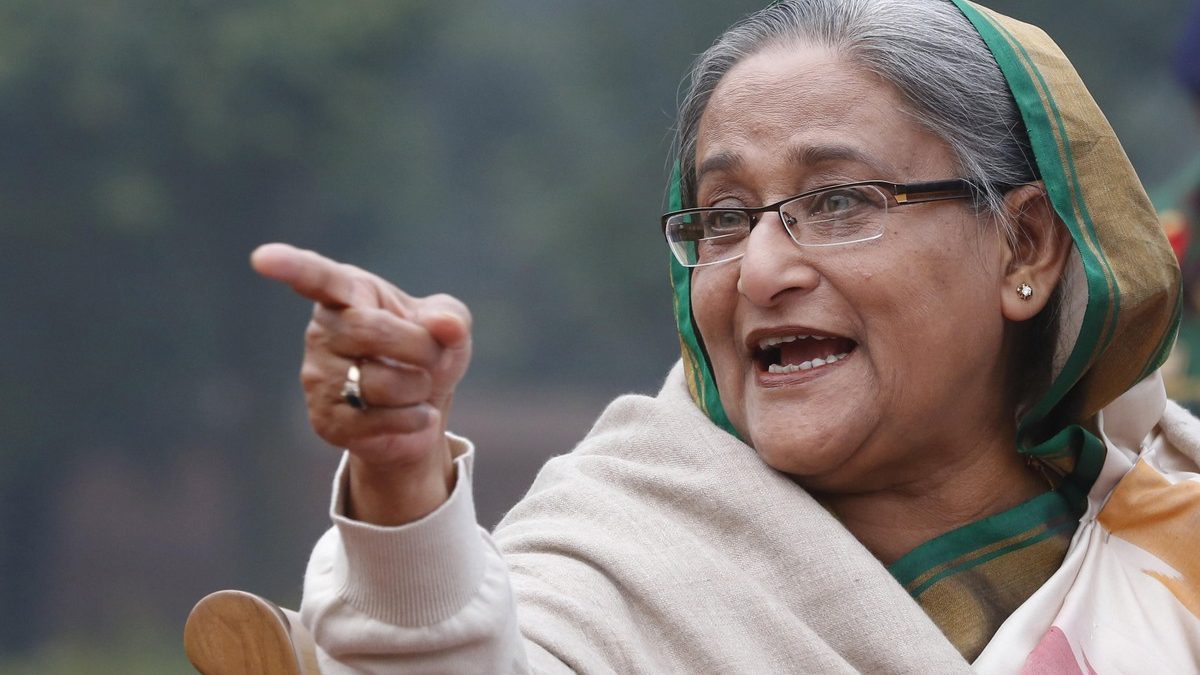What next for Sheikh Hasina?
That’s what many are asking after the war crimes court in Dhaka known as the International Crimes Tribunal (ICT) sentenced the ex-prime minister of Bangladesh to death for crimes against humanity.
Hasina, who had ruled Bangladesh for decades, fled the country in August 2024 after a student uprising toppled her regime. In a statement, Hasina slammed the verdict as “biased and politically motivated”.
Bangladesh’s Foreign Ministry, in the aftermath of the verdict, asked that India “immediately hand over” Hasina. The ministry said India is required to do so “as per the existing extradition treaty between the two countries”.
“It would be a grave unfriendly act and a contempt of justice for any other country to grant asylum to these individuals convicted of crimes against humanity,” the statement said.
India responded by saying it has “noted the verdict” and “remains committed to the best interests of the people of Bangladesh”. “We will always engage constructively with all stakeholders to that end,” it said. Notably, the statement did not address Bangladesh’s demand for Hasina to be returned.
But where is Hasina? What next for her?
Let’s take a closer look.
Where is she?
First, let’s take a look at Hasina’s movements since leaving Bangladesh in August 2024. She arrived at Hindon Air Force Base in Uttar Pradesh’s Ghaziabad on 5 August in a C-130J military transport aircraft. Hasina, who met National Security Adviser Ajit Doval, was initially put up at a nearby facility. She was reportedly extended all protocols befitting a head of state.
She was later moved to a safe house in Delhi. According to reports, she was put up in a bungalow in Lutyens’ Delhi, an area used to house important dignitaries. The bungalow is somewhere near India Gate and Khan Market in central Delhi. Officials have given Hasina multiple layers of maximum security, citing a threat to her life. They have said the bungalow is an Intelligence Bureau (IB) safe house but that the location cannot be made public.
Central agency officials have been placed in the inner and outer security cordon of the safe house, while “watchers and spotters” from the commando unit of the Delhi Police are deployed to keep a tab on people and any suspicious activities. Hasina has also been seen walking at Lodhi Garden, a popular place for walkers in central Delhi.
Hasina is said to have met her daughter Saima Wazed, the Regional Director of the World Health Organisation (WHO), a few times over the past few months. Wazed also lives in Delhi and has been given security by the Delhi Police. The meetings have reportedly occurred under strict and top-secret security protocols.
“I live freely in Delhi but remain cautious, given my family’s history,” Hasina said in October. She previously lived in India for over half a decade after the assassination of her father in 1975. “I would of course love to go home, so long as the government there was legitimate, the constitution was being upheld, and law and order genuinely prevailed,” she said.
She added that she would not return to Bangladesh under any government formed after elections that exclude her party, and plans to remain in India.
What next for Hasina?
To begin with, Hasina’s properties will be confiscated as per the orders of the International Crimes Tribunal.
“For the crimes committed by former Prime Minister Sheikh Hasina and former Home Minister Asaduzzaman Khan, not only have death sentences been imposed but all their properties have also been ordered to be confiscated and taken into the state’s favour.” The ICT said this order must be implemented quickly.
The verdict against Hasina can be appealed to the Supreme Court. However, it must be challenged within 30 days. And this can only happen if Hasina is arrested or she voluntarily returns to Bangladesh. If Hasina chooses to ignore the summons for over a month, she can be labelled a fugitive, absconder or offender.
If the court declares Hasina a fugitive or absconder, the government can seize her property and cancel her passports. Bangladesh can also escalate its pleas for her extradition. Dhaka can also request that that Interpol issue a Red Notice.
It remains to be seen how the issue of Hasina’s extradition affects ties with India.
Abbas Faiz, an independent South Asia researcher, told Al Jazeera the government, via the verdict, is trying to demonstrate to the people that it has “taken into account their wishes” before upcoming elections next year.
“Authorities in the interim government want to show that it is possible to have a clean and better judicial process under their watch,” Faiz said. “What the outcome of that is going to be, we’ll have to wait and see, noting there also remains uncertainty over how the verdict will affect ties with India.”
He said the people of Bangladesh still want to see closure. “The significance of this verdict also opens the door for a national reconciliation process, which is not a bad thing,” Faiz concluded.
Sreeradha Datta, a professor specialising in South Asian Studies at Jindal Global University, told the outlet India will not extradite Hasina.
“Under no circumstances is India going to extradite her… We saw in the last year and a half that relationships between India and Bangladesh are not at their best, and have been fragile at many occasions.”
Under the terms of the treaty between India and Bangladesh, individuals cannot be extradited for political offences. It remains to be seen what twists and turns the relationship between India and Bangladesh takes next.
With inputs from agencies
)